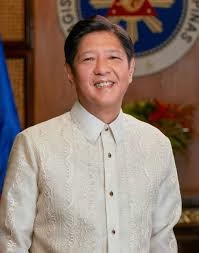Ferdinand “Bongbong” Marcos Jr., the 17th President of the Philippines, is a political figure whose career and lineage have been the subject of global attention.
As the son of the late Ferdinand Marcos Sr., a former Philippine president, and Imelda Marcos, Bongbong has navigated the complexities of his family legacy while forging his own path in politics.
Profile Summary
Name: Ferdinand Romualdez Marcos Jr.
Nickname: Bongbong Marcos
Age: 67 (as of 2024)
Date of Birth: September 13, 1957
Place of Birth: Manila, Philippines
Profession: Politician, Public Official
Current Role: President of the Philippines (since June 30, 2022)
Political Party: Partido Federal ng Pilipinas
Nationality: Filipino
Height: 5 feet 8 inches (173 cm)
Education: University of Oxford (Special Diploma in Social Studies) Instagram: @bongbongmarcos
Early Life
Ferdinand Romualdez Marcos Jr. was born on September 13, 1957, in Manila, Philippines. He is the only son of Ferdinand Marcos Sr., who served as the country’s president from 1965 to 1986, and Imelda Marcos, a former beauty queen and influential political figure.
Bongbong grew up in a privileged environment, attending prestigious schools in the Philippines and abroad. He completed his primary and secondary education at La Salle Green Hills and Worth School in England, respectively.
In the 1970s, he enrolled at the University of Oxford, where he obtained a Special Diploma in Social Studies.
Although there has been controversy surrounding his academic credentials, Bongbong has maintained that his education prepared him for public service.
Entry into Politics
Bongbong Marcos began his political career in 1980 when he was elected Vice Governor of Ilocos Norte, a position he held until 1983. Following this, he served as the Governor of Ilocos Norte from 1983 to 1986.
During his tenure, he focused on regional development and infrastructure projects. However, his early political career coincided with the tumultuous final years of his father’s administration, which faced accusations of corruption, human rights abuses, and economic mismanagement.
Post-1986: Political Comeback
After the 1986 People Power Revolution, the Marcos family was ousted from power and went into exile in Hawaii. Bongbong returned to the Philippines in 1991, following the death of his father in 1989.
Re-entering politics, he was elected as Representative of the 2nd District of Ilocos Norte in 1992. He later served as Governor of Ilocos Norte again from 1998 to 2007 and as Senator of the Philippines from 2010 to 2016.
Presidential Bid and Victory
In 2022, Bongbong Marcos ran for the presidency under the banner of the Partido Federal ng Pilipinas. His campaign emphasized unity and economic recovery, resonating with millions of voters.
He won the election by a landslide, receiving over 31 million votes, the largest majority in Philippine electoral history. His victory marked the return of the Marcos family to the pinnacle of Philippine politics after more than three decades.
Presidency
Bongbong Marcos Jr. assumed office as the 17th President of the Philippines on June 30, 2022. His administration has prioritized economic development, infrastructure modernization, and digital transformation.
He has also focused on strengthening international relations, particularly with Southeast Asian nations and major global powers.
Family and Personal Life
Bongbong is married to Louise Araneta-Marcos, a lawyer and educator. The couple has three sons: Ferdinand Alexander “Sandro,” Joseph Simon, and William Vincent “Vinny.”
Sandro Marcos has followed in his father’s footsteps and entered politics, currently serving as a representative in the Philippine Congress.
Bongbong’s career has not been without controversy. Critics have accused him of downplaying or revising the history of his father’s regime, which was marked by allegations of martial law abuses and corruption.
Despite these criticisms, Bongbong has remained a polarizing yet influential figure in Philippine politics. His supporters view him as a leader who can bring stability and progress to the nation, while detractors call for accountability for past injustices.
Net Worth
As of 2024, Bongbong Marcos’s net worth is estimated at $25 million. His wealth comes from various sources, including family assets, real estate investments, and political activities. However, the Marcos family’s wealth has been a subject of public scrutiny and legal disputes.
Conclusion
Marcos Jr.’s presidency is viewed through the lens of his family’s complex legacy. While he promotes a message of unity and progress, critics highlight the human rights abuses and corruption during his father’s regime. His administration’s success in addressing economic challenges and international relations continues to shape public opinion.
